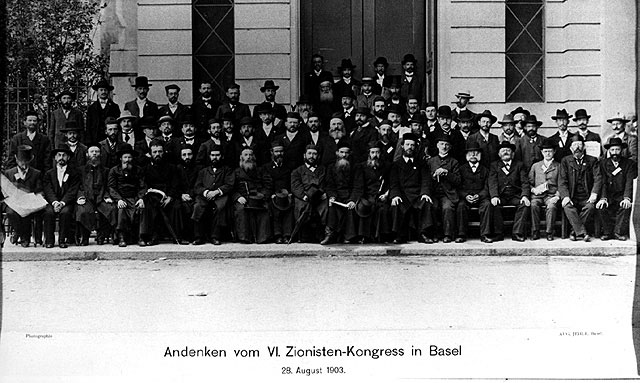1903 The Ugandan Plan

Herzl brought to the Sixth Zionist Congress an offer from the British for Jewish settlement of Uganda. The plan was met with stiff opposition. After investigating the offer it was rejected a year later.
At a meeting held on April 23, 1903 by Theodore Herzl with the Colonial Secretary of Great Britain, Joseph Chamberlain stated that in his opinion, Uganda in East Africa seemed an ideal location for the resettlement of the Jews. At first , Herzl ignored the suggestion, fearing that it would endanger his negotiations for the establishment of a Jewish protectorate in Sinai. When this plan fell through, Herzl pursued Chamberlain's offer. In August 1903, Herzl received a letter written by Sir Clement Hill, Superintendent of African Protectorates, indicating Great Britain's willingness to consider Jewish settlement in East Africa. Hill stated that this settlement could be politically independent, with a Jewish governor and a Jewish administration. At the Sixth Congress, Herzl presented a summary of his negotiations with the British. Herzl claimed that the Congress should not reject the plan, but should investigate it, as it was a legitimate offer from the British Empire, an offer which conferred upon Zionism an important stamp of approval and legitimacy. The reaction of the Congress delegates was heated. Opponents said that only the land of Israel was the legitimate home for the Jewish People. Many threatened to withdraw, and the Russian delegation did, in fact , walk out of the congress-hall for a number of hours. While the Congress voted by a majority to impanel a commission to investigate the British offer, it was apparent that acceptance of the offer would undermine the Zionist movement. Herzl died ten months later; at the next Congress, the commission reported back that Uganda was not suitable for Jewish settlement.
 >
>